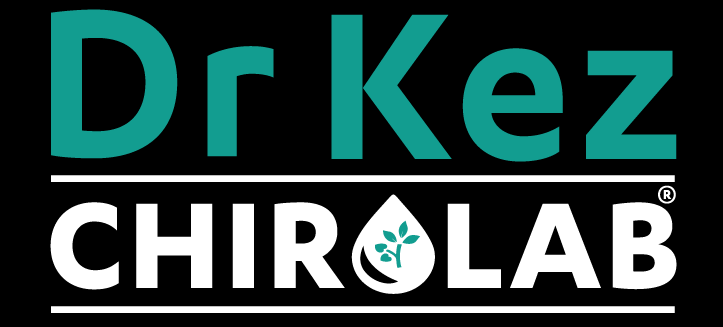
Investigating the Effectiveness of the Types of Herbal Medicine: What Does the Evidence Suggest?
Aloe Vera, turmeric, lavender, and other medicinal plants have been used since ancient times. Natural remedies are rich in antioxidants, phytonutrients, and healing compounds. Some have the ability to reduce pain and inflammation, while others support brain function and relieve stress.
Several types of herbal medicine systems exist today, from Ayurveda to traditional Chinese medicine. They all use botanical extracts, essential oils, and other plant-based remedies. Centuries ago, people treated most illnesses with herbal teas, roots, seeds, and steams.
The question is, does herbal medicine really work? It depends on who you ask. For every study that supports its effectiveness, there's another that claims the opposite.
But the same goes for medications and other treatments based on clinical research. Ask three different experts about the efficacy of a particular drug, and you'll get three different answers.
Given these aspects, it's not surprising that most consumers are confused about herbal products. Let's take a closer look at the potential benefits of herbal medicine and what the research says.

What Is Herbal Medicine?
Phytotherapy, or herbal medicine, is the study and use of medicinal plants. Its history dates back to the Paleolithic age. More than one-third of the medications available today come from plants and other natural compounds.
Aspirin, for example, contains salicin, a naturally occurring compound in Salix Alba. Manufacturers use Taxus brevifolia to produce the drug Paclitaxel. Other plants, such as forskolin, may play a role in the prevention of chronic illnesses, such as obesity and heart disease.
Clinical evidence supports the health benefits of natural remedies. Aloe vera, for instance, may help reduce acne. It can also speed up wound healing and improve the symptoms of ulcerative colitis, psoriasis, and herpes simplex.
Dandelion, ginger, green tea, and other herbal products are widely used for their therapeutic effects. In clinical trials, green tea improved brain function and facilitated weight loss. Ginger, on the other hand, may boost immune function and reduce inflammation.
The plants used in herbal medicine are available in pill or liquid form. Some are not safe for consumption but can be applied topically. Others are suitable for both internal and external use.
Types of Herbal Medicine Systems

Each culture uses different plants and herbs for therapeutic purposes.
Traditional Chinese medicine, for example, seeks to restore the yin-yang balance through the use of plants and spices.
Radix astragali, one of the most popular plants in China and other Asian countries, is rich in phytosterols, choline, and trace minerals. These compounds exhibit anti-inflammatory, anti-cancer, and cardioprotective effects.
Glycyrrhiza uralensis, or Chinese licorice, contains powerful antioxidants that fight inflammation. Traditionally, it's used in the treatment of gastric ulcers, coughs, allergies, and liver disorders.
Ayurvedic medicine, on the other hand, combines herbal products, exercise, and good nutrition. Some of the most widely used herbs and spices are boswellia, ashwagandha, triphala, cumin, brahmi, and turmeric. Modern research confirms their healing power.
In one study, Ayurvedic herbs worked just as well as glucosamine and celecoxib in the treatment of knee osteoarthritis. Subjects who used these plants experienced reduced knee pain and greater mobility.
Ayurvedic herbs may also benefit people with diabetes, arthritis, and inflammatory conditions. Turmeric, for instance, may relieve pain and swelling due to its high content of curcumin. In clinical trials, it was just as effective as the drug diclofenac.
The plants used in African medicine boast healing properties, too. Pygeum, for example, may improve the symptoms of urinary tract disorders and kidney disease. It also appears to be effective in the treatment of benign prostate hyperplasia.
Are Herbal Medicines Safe?

Herbal medicines may or may not be safe, depending on their source, quality, and dosage. The route of administration matters, too.
Take turmeric, for example. As mentioned earlier, this spice is rich in curcumin and other anti-inflammatory compounds. Its health benefits include but are not limited to:
- May protect against Alzheimer’s disease, cognitive impairment, and depression
- Lower risk of heart disease
- Reduced cancer risk
- Arthritis pain relief
- Decreased cholesterol levels
- Improved digestion
Turmeric may improve gallbladder function in healthy people. The downside is that it may not be safe for those with gallbladder disease. If you have a bile duct obstruction or gallstones, this plant may worsen your symptoms.
The same goes for green tea, sage, garlic, cat's claw, and other natural remedies. They are safe for the general population but should be used with caution by those with certain diseases or health conditions.
Sage, for instance, may benefit individuals with heart disease, diabetes, memory disorders, or even cancer. Despite its high safety profile, it may still cause seizures, arrhythmia, and other side effects when consumed in excess. Thujone, one of its active compounds, can be toxic if used in large doses.
All in all, make sure you stick to the recommended dosage when using herbal medicines. Remember that more isn't always better. Research the products you're interested in or discuss your options with a healthcare professional.
Harness the Power of Nature
Herbal medicines have stood the test of time, changing millions of lives. Their benefits range from pain relief to lower cholesterol and improved memory.
Many plants appear to be effective in the treatment of chronic diseases that don't respond to conventional drugs. Ginger and turmeric, for instance, may work just as well as anti-inflammatory medications. Plus, they are much safer.
Now that you know more about the different types of herbal medicine systems, go ahead and research your options. Browse our online store for pain relief creams and other natural formulas with proven benefits. Or click on each of the creams below to find out more about their healing powers!









